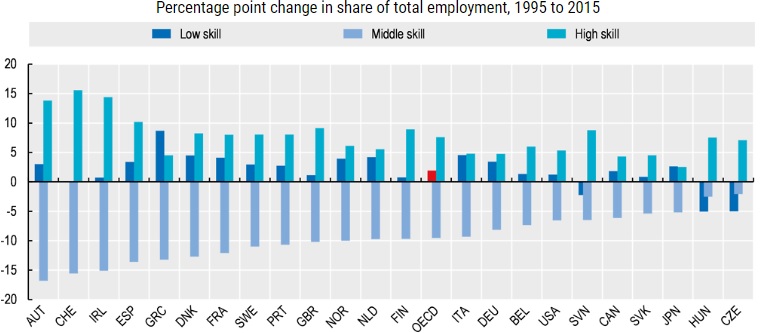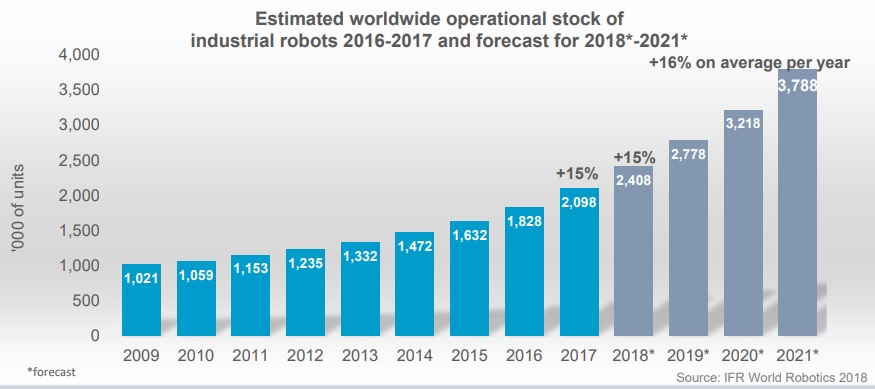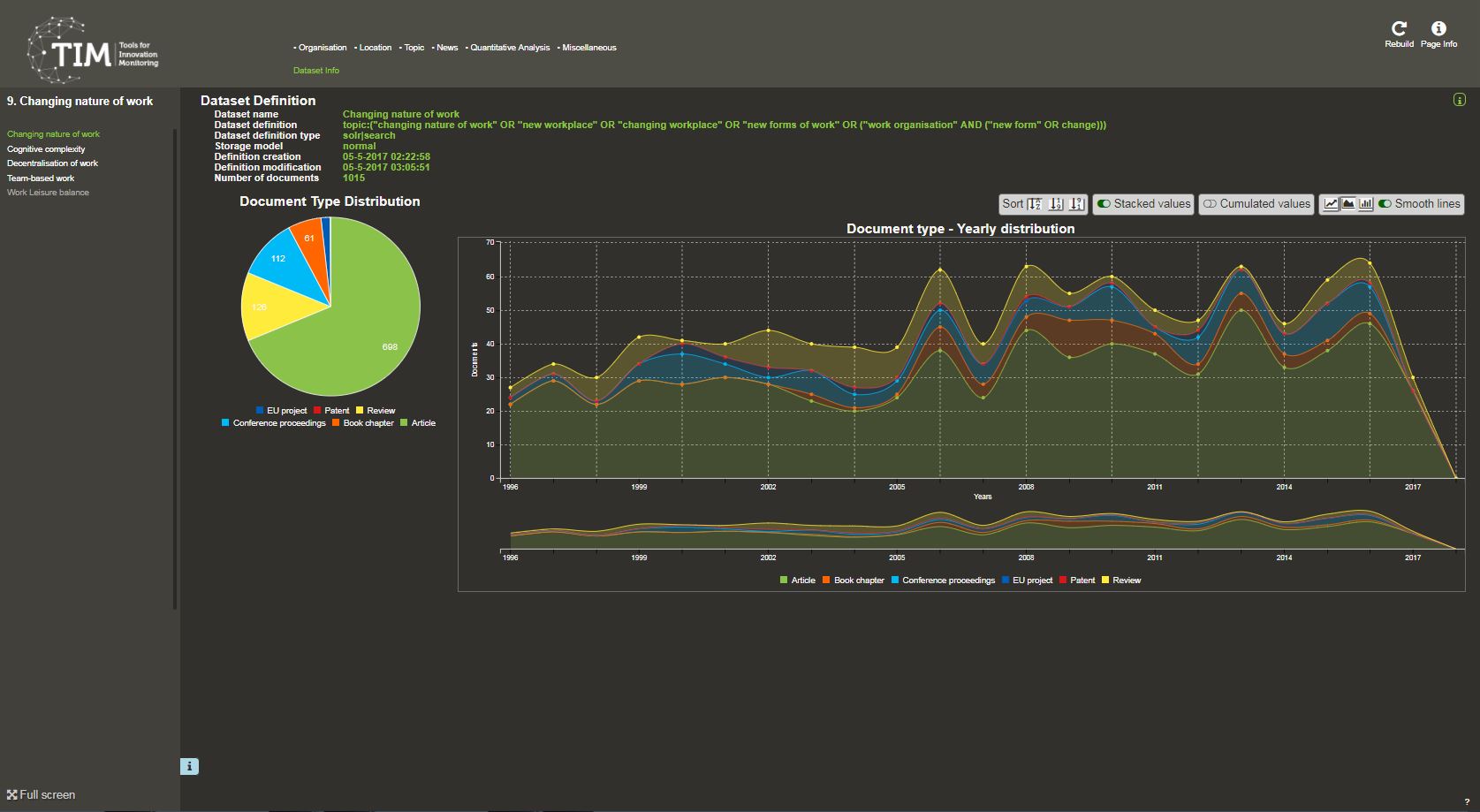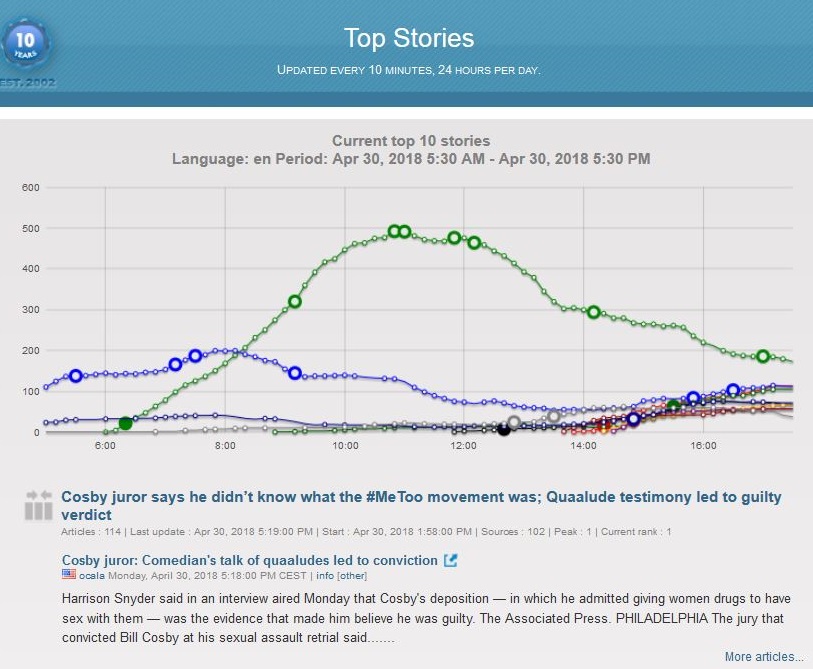How Is The Nature Of The Workplace Changing?

Digitalisation and hyperconnectivity, new generations inbound the workforce and older generations working longer are changing the forms of employment, career models, and organisational structures.
Automation and other advancements in technology accept the potential to substitute both routine and cognitive tasks, while increasing the need for new skills and creating unprecedented opportunities.
Developments and Forecasts
The digital age is disrupting labour markets and changing skills needs. Technological progress—automation, AI and other emerging technologies—modify the nature of work and employment. New work patterns emerge; piece of work is increasingly flexible, decentralised, and cognition-based, driven by self-fulfillment and increasing entrepreneurial spirit. Digital and socio-emotional skills are increasingly necessary to thrive in the new world of work.
Demographic trends of workforce
Globalisation
Technological progress
Platformisation of work
Not-standard forms of employment on the rise
Bear on of shift to round economic system
Other relevant developments for changing nature of work
More than developments and forecasts
Potential Implications
Digitalisation and new technologies are fundamentally changing the nature of work, business organization models, institutions and society as a whole.
Strategies have to be developed to address:
Access to instruction and training
Financial strategies for new forms of work
Economic science of the digital revolution
More implications
Indicators
Polarisation in the OECD labour marketplace
Source: OECD, "How technology and globalisation are transforming the labour market", inOECD Employment Outlook 2017

Estimated worldwide operational stock of industrial robots
2016-2017 and forecast for 2018-2021
Source: International Federation of Robotics,
Press Conference, Oct 2018

More indicators
Relevant EC Piece of work
Policy papers and projects relevant to irresolute nature of work
Models relevant to changing nature of work used past the EC
TIM (Tools for Innovation Monitoring) is a tool developed by the EC Articulation Research Heart to monitor and meliorate sympathise the different facets of innovation and technological development.
Utilize TIM to explore R&I related to Irresolute nature of piece of work

TheEMM News Brief, Europe Media Monitoring, is a fully automated system that analyses both traditional and social media. It gathers and aggregates about 300,000 news articles per twenty-four hours from news portals globe-wide in up to lxx languages.
Employ EMM News Cursory to explore worldwide news related to Changing nature of work

More EC piece of work
Other resources
Selected resources relevant to irresolute nature of piece of work
More resource on this megatrend
Disclaimer: the content presented in this Megatrends Hub does non correspond the views of the JRC or those of the EC, nor an endorsement by them.
Send your contribution
How Is The Nature Of The Workplace Changing?,
Source: https://knowledge4policy.ec.europa.eu/foresight/changing-nature-work_en
Posted by: langstonbillostrand.blogspot.com


0 Response to "How Is The Nature Of The Workplace Changing?"
Post a Comment